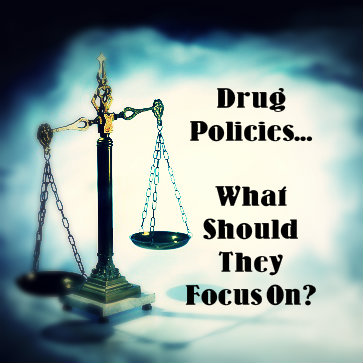Are Current Drug Policies Really Not Working?
A report out of the United Kingdom highlights the widespread distribution of illegal street drugs, with the researchers calling the war on drugs a failure. The experts say it’s time to address drug use through a public health approach rather than as a criminal justice initiative.
Illegal Drugs – Stronger, Cheaper And More Readily Available
The study from the International Centre for Science in Drug Policy, which examined decades of drug surveillance data involving the trafficking of marijuana, cocaine and opiates like heroin, showed that illegal drugs are cheaper, purer and more available than ever.
 The findings highlighted the decrease of drug prices between 1990 and 2010, while purity and potency increased. In Europe the price of opiates and cocaine decreased by 74 percent and 51 percent during that time period.
The findings highlighted the decrease of drug prices between 1990 and 2010, while purity and potency increased. In Europe the price of opiates and cocaine decreased by 74 percent and 51 percent during that time period.
In addition, seizures of drugs increased during the study period. In most locations that were monitored the amount of cocaine, cannabis and heroin confiscated by law enforcement increased substantially during the years examined.
Should The Focus On Curbing Drug Use Shift?
The authors of the report note that the findings should be taken as an indication that current strategies to curb drug distribution are failing. However, despite these concerns, the focus for national governments has been law enforcement. Other approaches, such as decriminalization and legal regulation, have not been broadly incorporated.
Co-author Dr. Evan Wood, scientific chairman of the Centre, explained that the focus should shift to drug use as a public health concern rather than a criminal charge. Wood also talked about the need for increased addiction treatment availability and other public health strategies.
Just days before the findings were released, a senior UK police officer offered his opinion that decriminalization would be more effective than the current approach.
How Decriminalization Of Drug Offenders May Be A Positive Thing
Mike Barton, Chief Constable of Durham Police, voiced his position that drug users needed treatment and care, not criminal justice. Barton also said that decriminalization would threaten the motivation of dealers by taking away their income and power.
Instead, prohibition funds the drug dealers, says Barton, who is calling for an open debate that acknowledges the problems that still exist in the fight to reduce drug use.
Recovery Treatment Or Criminal Charges?
While the overall global strategy is prohibition, there are some national governments incorporating different policies. In Portugal individuals caught possessing drugs can avoid criminal charges if they undergo treatment.
While a more public health-focused approach seems clear to some in the scientific community, public officials have been less enthusiastic. No political party in the UK supports a legal regulation approach when it comes to hard drugs, but some politicians support legalizing marijuana.
Many recognize the delicate balance between treating drug use as a criminal justice issue and providing support for the recovery of the user. The community must be protected from the influence of the drug market, but the individual must be supported in their recovery, too.
Read More About Drug Use In The News



